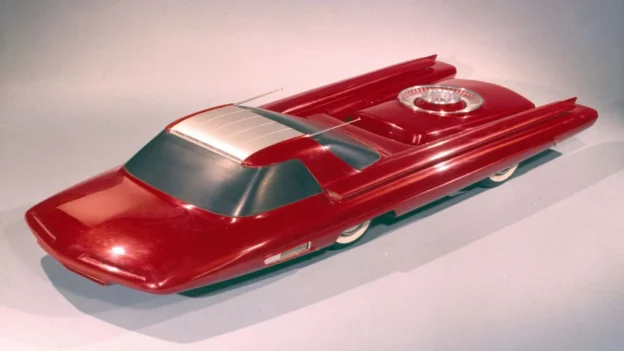Before the advent of hydrogen cars, automakers competed to offer vehicles with innovative performance. In the 1950s, one of the most outstanding proposals was the Ford Nucleon, a car that could have dethroned hydrogen as a fuel thanks to its impressive range of 8000 km without refueling.
History of the Ford Nucleon
During the 1950s, the world experienced a technological revolution. However, this era also saw the birth of inventions that, although innovative, proved impractical and represented a high risk. The nuclear energy nuclear power, noted for its cleanliness and efficiency compared to fossil fuels, was one of the most discussed technologies of the time.
In 1958, Ford introduced the Nucleon, a nuclear-powered car. This vehicle, equipped with a compact nuclear reactor, promised to travel up to 8000 km without CO₂ emissions. Its futuristic design included a heat exchanger that drove a turbine, generating electricity for an electric motor located at the front of the car.
Despite its promising characteristics, the use of radioactive elements as fuel presented major challenges. Although the Ford Nucleon was equipped with safety systems to protect against radiation, the need for thick lead coatings significantly increased its weight.
In addition, the nuclear reactor required a powerful cooling system to handle the heat emitted, something difficult to control in a compact vehicle.
Ford Nucleon was discarded: will they take up the proposal?
The nuclear car concept did not prosper. No prototype of the Nucleon was built; only mock-ups at different scales were made.
More than six decades after its introduction, the Ford Nucleon is an idea consigned to the past. Today, automotive technology has advanced to the point of electric cars and biofuel engines that can transport large loads without emitting CO₂.
Hydrogen technology continues to improve, offering increasingly efficient engines with greater range, reinforcing its relevance in the future of sustainable mobility.

Follow us on social networks and don’t miss any of our publications!
YouTube LinkedIn Facebook Instagram X
Source: ecoticias
Photo: motorpasion

